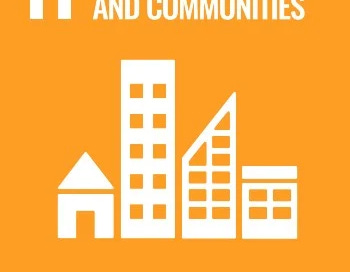Part 2: Global Goals, Local Consequences: How UN Policy is Reshaping Canadian Cities
By AA Murray
In recent years, Canadian municipalities have undergone a dramatic policy transformation — one that few residents fully understand, but which is quietly redefining the priorities of local government. At the centre of this shift lies the widespread adoption of the United Nations Sustainable Development Goals (SDGs), particularly Goal 11: Sustainable Cities and Communities.
These goals, while framed as a global effort to reduce inequality and environmental harm, are increasingly being implemented through top-down funding structures that prioritize global objectives over local democratic control. The result is a growing disconnect between taxpayers and their governments, and an erosion of accountability at the municipal level.
London, Ontario is one example of a city now deeply embedded in this transformation.
Canada’s Financial Pipeline to Global Policy
Much of this agenda is financed through two federal programs: the Green Municipal Fund (GMF) and the Sustainable Development Goals (SDG) Funding Program.
The GMF, administered by the Federation of Canadian Municipalities (FCM), was created in 2000 and has received over $1.6 billion in federal funding. Nearly $1 billion of that was injected in 2019 to support new energy-efficiency initiatives. The program promotes so-called “triple bottom line” benefits — environmental, economic, and social — and directs funding toward pilot projects, capital infrastructure, and climate-focused development.
At first glance, the program appears to reward innovation. In reality, it has become a financial mechanism to enforce ideological compliance. Municipalities are financially incentivized to adopt internationally derived policies, regardless of their suitability or popularity among local residents. These incentives arrive in the form of planning grants, pilot funds, and capital project awards.
This is not just about green energy. The funding supports large infrastructure contracts that increasingly come with policy strings attached — including the incorporation of identity-based hiring and procurement clauses that prioritize certain groups over others. These mandates are often embedded in procurement language or long-term strategic plans that escape public scrutiny.
In effect, taxpayer money is being redistributed not to serve local needs, but to fulfill global targets that enrich major construction consortiums and empower federally identified “priority groups” — at the direct expense of ordinary citizens who expect democratically grounded, fiscally responsible governance.
The SDG Funding Program: Localizing the 2030 Agenda
While the GMF focuses on infrastructure, the SDG Funding Program exists to institutionalize the United Nations 2030 Agenda itself at the municipal level. The program offers up to $900,000 per project, and explicitly prioritizes efforts to “localize” the SDGs, adapt them to Canadian contexts, and report progress back to federal authorities.
In 2024, the federal government awarded $9.9 million through this program to approximately 30 Canadian projects. Every funded initiative is expected to enhance public awareness of the UN Agenda, align municipal decision-making with the SDG framework, and — crucially — provide measurable support to so-called “equity deserving groups.”
The language of equity may sound benign, but the definitions remain vague and politically charged. Who decides which groups qualify as deserving? What are the criteria for inclusion or exclusion? These terms are rarely defined in ways that reflect public input or democratic principles. Instead, they serve to institutionalize identity-based policy that deepens social division and undermines merit-based systems.
Embedded Control: Beyond the Local Budget
This global framework of control does not stop at federal funding. It extends through integrated bilateral agreements with provinces and territories and is often reinforced by municipal planning departments eager to stay in compliance with upper-tier funding priorities.
Even more troubling, many Canadian municipalities are unknowingly supporting global development abroad. The Canada Fund for Local Initiatives (CFLI), a federal program often touted for promoting “local prosperity,” regularly funds projects in designated developing countries, not in Canada. The ideological overlap between international development and domestic SDG alignment suggests a seamless — and increasingly unaccountable — global governance model at work.
What Comes Next: The G77 and the Global Majority
In future articles, we will examine how Canada's alignment with the G77 — a UN bloc of developing nations — further entrenches this trend. The G77 represents the interests of countries that, while struggling with genuine development challenges, now exercise disproportionate influence over donor countries like Canada through global frameworks such as the SDGs and the Paris Agreement.
These alignments are not merely symbolic. They come with real financial and policy consequences, including obligations that are downloaded onto municipalities under the guise of climate justice, equity programming, and “inclusive infrastructure.”
The result is a local governance model that is no longer locally governed.
A Final Word
This article is part of an ongoing series unpacking how global policy frameworks are reshaping Canadian municipal governance. The intention is not to generate outrage, but to foster awareness. Only through a clear understanding of how these programs work — and who they truly benefit — can citizens begin to reclaim democratic control over their cities.
The issue is not whether sustainability, equity, or environmental stewardship are worthy goals. The issue is who defines sustainability, equity, and environmental stewardship, who pays, who benefits, who governs — and ultimately, whether the citizens of cities like London still have any say at all.
Stay tuned as we continue to follow the funding, decode the policy language, and reveal how international frameworks are being embedded into Canadian law — often without a single vote cast.
This article is part of the Policy & Governance series by Concerned Citizens Association of London (CCAL).
We examine how global frameworks and top-down funding structures are reshaping municipal policy and eroding democratic accountability.
🔍 Explore the full series here: ccalondon.substack.com
📬 Subscribe for updates
💬 Contact: ccal.info2030@gmail.com
Research & writing by AA Murray, contributing author to CCAL’s governance and policy education initiative.



